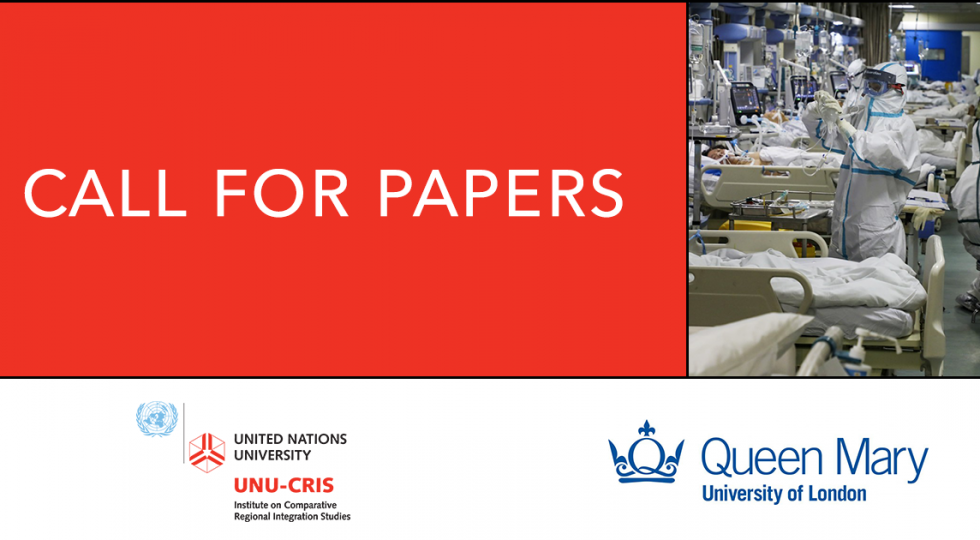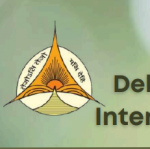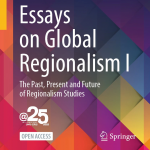Call for Papers: Special Issue on Challenges and Opportunities for Regional Health Cooperation: Lessons from the COVID-19 Pandemic and Other Infectious Diseases

Editors
Philippe De Lombaerde
United Nations University Institute on Comparative Regional Integration Studies (UNU-CRIS)
and Neoma BS.
Doreen Montag
Centre for Global Public Health, Queen Mary University of London
The COVID-19 pandemic has challenged global health governance. Despite having WHO international health regulations and pandemic guidelines in place for years prior, COVID-19 took nation states by surprise in unprecedented dimensions across the world. National health care systems and regional cooperation, such as the EU, ASEAN, CAN, Mercosur or SAARC, are not prepared and struggle to tackle together a pandemic challenge of this magnitude. In many countries, neoliberal paradigms and austerity measures have decreased levels of health system financing, particularly in health prevention, and led to rationalisation of health care services and a profit-oriented business model.
This has often weakened the health systems’ capacity to respond adequately to the protection of the right to health for all in normal conditions and threatens to lead to a collapse when responding to epidemics.

The current pandemic and its economic impact open up several scenarios for future developments, an opportunity for (regionally) coordinated health and socioeconomic responses through the establishment of solidarity systems that avoid reinforcing economic imbalances, coordinated responses in border surveillance, production and access to medicines, vaccines, clinical testing and protection material for population protection, but also isolation policies and economic protectionism potentially increasing global inequality, inequity and costs of human lives and livelihoods.
It is clear that a discussion on needed/optimal levels of regional cooperation and responses cannot only be conducted in terms of health policy outputs and outcomes on the ground, i.e. the regional dimension of health service delivery. It is equally important to jointly discuss the regional institutions that are needed to build a regional response and coordination capacity, and to look at the ‘production technologies’ of the regional public goods or the ‘public supply aggregation technology’ in the area of health. Whether these regional public goods will be produced or not will depend on a complex set of variables, including those of economic and political natures. This discussion on the appropriate regional institutional framework is particularly vivid in the context of the EU. How these institutions and regional cooperation are reviewed, discussed, created, reflected and agreed upon in times of lockdown, and the increasing importance of digital diplomacy, is another important area to investigate and analyse during and after the pandemic.
Whatever governments decide, history is in the making and it is crucial to understand, comprehend and critically appraise current scenarios, politics, and their impacts to inform decision-making. We need to comprehend the driving factors and mechanisms of regional health cooperation that have been vital (or not) in managing the pandemic. What is needed and what has not worked? What can we learn from this experience and earlier experiences, and how can we protect future generations by relying on regional solutions?
Read the full call:




